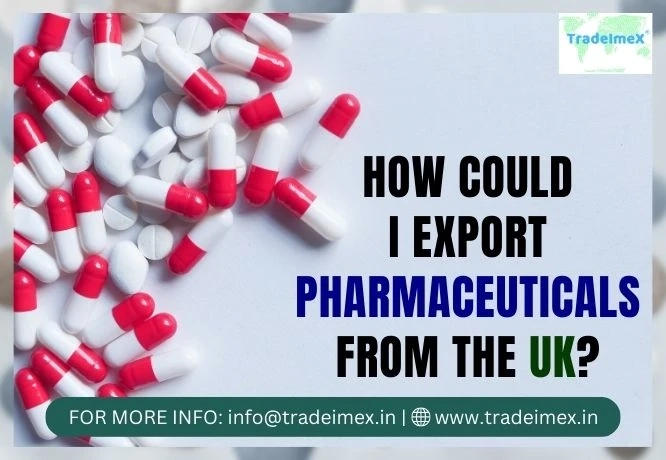The pharmaceutical industry is a global enterprise that thrives on innovation and international collaboration. As a business owner or entrepreneur in the United Kingdom (UK), you might be wondering about the process of exporting pharmaceuticals to other countries. This blog aims to provide a comprehensive guide on how you can navigate the complexities involved in exporting pharmaceutical products from the UK by studying UK Trade Data reports accurately while ensuring compliance with regulations and maximizing opportunities for growth.
UNDERSTANDING REGULATORY REQUIREMENTS
Exporting pharmaceuticals from the UK requires meeting stringent regulatory standards to ensure product quality, safety, and efficacy. The first step is obtaining the necessary licenses and certifications, including obtaining a Wholesale Dealer's license, a Manufacturer's' Authorization, and a Wholesale Distribution Authorization. These permits demonstrate compliance with the Medicines and Healthcare Products Regulatory Agency (MHRA) standards.
IDENTIFYING TARGET MARKETS
As an exporter, it is crucial to identify and assess potential target markets for your pharmaceutical products. As per UK Import Data, Conducting market research will assist in determining which countries have a demand for your specific products, and which ones have regulatory frameworks that align with UK standards. Consider working with local trade organizations, and embassies, or hiring consultants to gather market intelligence and analyze market trends to make informed decisions.
ADHERING TO GOOD DISTRIBUTION PRACTICES
Maintaining strict adherence to Good Distribution Practices (GDP) is crucial for exporting pharmaceuticals. These guidelines ensure the integrity and quality of products throughout the supply chain. Implementing robust quality management systems, temperature-controlled storage, and efficient distribution networks are essential to meet GDP requirements.
SECURING EXPORT DOCUMENTATION AND PACKAGING
Exporting pharmaceuticals from the UK involves preparing proper documentation such as invoices, packing lists, and certificates of analysis. In addition, packaging must comply with international standards and ensure the products' stability and integrity during transit. Understanding customs requirements and securing necessary export licenses will assist in smooth transportation and clearance at destination ports.
BUILDING INTERNATIONAL DISTRIBUTION NETWORKS
Developing strong distribution networks is vital for the successful export of pharmaceuticals. Collaborating with reputable international distributors, agents, or local partners can help navigate complex regulatory frameworks, establish a market presence, and access a wider customer base. Local partners can provide valuable insights into market preferences, distribution channels, and regulatory pathways.
ENSURING POST-MARKET COMPLIANCE AND PHARMACOVIGILANCE
Post-market compliance is one of the critical aspects of exporting pharmaceuticals. Companies must monitor the safety and performance of their products once they reach the market. Implementing robust pharmacovigilance systems allows for the timely reporting and investigation of adverse events, ensuring patient safety and regulatory compliance.
CONCLUSION
Exporting pharmaceuticals from the UK requires careful planning, regulatory compliance, and diligent execution. Understanding the regulatory landscape, identifying target markets, following good distribution practices, securing proper documentation, and building strong distribution networks are key factors for success in exporting pharmaceutical products.
To know more about the process and accurate steps to be taken in order to export pharmaceuticals and medical tools from the United Kingdom, get in touch with TradeImeX today and learn in a more strategic manner. We have already helped and assisted 5000+ clients with the most updated records.
Email: info@tradeimex.in
Source URL: https://www.atoallinks.com/2023/how-could-i-export-pharmaceuticals-from-the-uk/


